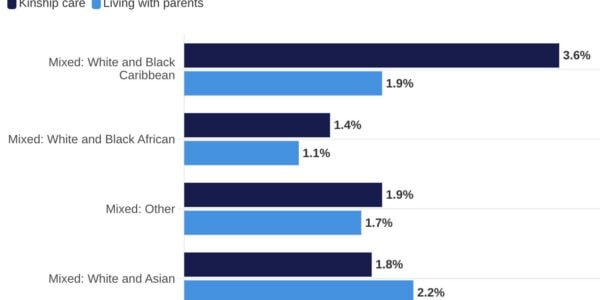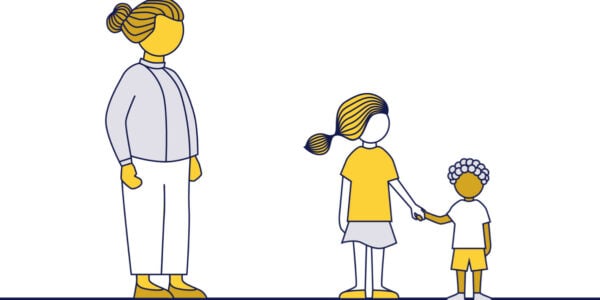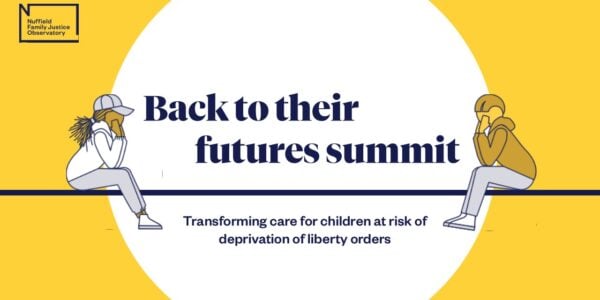The number of 10-17 year-olds in care proceedings in England has almost doubled in the last decade, rising faster than for any other group of children.
According to new data analysis published today by Nuffield Family Justice Observatory, the number of 10-17-year-olds subject to care proceedings rose by 95 per cent between 2011/12 and 2019/20 (from 3,081 to 6,013 children). Increases in the oldest children coming into the system were particularly sharp, with the number of 15-year-olds growing by 150 per cent and 16-year-olds by 285 per cent during that time.
The rise represents a significant shift in the age range of children coming before the family court and raises questions about how well equipped the system is to meet their needs. A decade ago, adolescents constituted just 18 per cent of all children in care proceedings in England; this had risen to 27 per cent by 2019/2020.
There is evidence of a particularly sharp increase in the number of adolescents subject to care proceedings in the two years between 2014/15 and 2016/17. This coincides with changes in the use of voluntary accommodation arrangements under Section 20 of the Children Act 1989 (in which parents can voluntarily agree that their child or children should be accommodated by the Local Authority – often in foster care – with no involvement by the court) after concerns were raised about their use by the family court. The marked rise in young people in care proceedings from this point suggests an increase in cases coming before the court instead.
The North East of England has by far the highest numbers of older children and young people in care proceedings, with this divergence from other regions becoming particularly apparent from 2014/15 onwards. By 2019/20, 26 out of 10,000 adolescents in the North East were coming before the family court, more than double the national average of 11.6. Other regions with higher rates include the North West, Yorkshire and the Humber, and London.
Researchers also examined case files about individual 10-17-year-old children through one study with four local authorities in England and Wales and another with the East London Family Court. The audits showed intrafamilial concerns about parents struggling with the debilitating impact of entrenched poverty and disadvantage and the longstanding impact of substance misuse, mental health needs and domestic abuse. Children had often faced long-term neglect and trauma at home. Risks from outside the home such as criminal or sexual exploitation were present in a significant proportion of the cases reviewed, most commonly where child protection issues from within the home were already a concern.
Research was carried out by Nuffield Family Justice Observatory with the Family Justice Data Partnership (a team based at Lancaster University and Swansea University), using securely held family justice and health data within SAIL Databank, and Research in Practice.
Older children come into care proceedings with a unique set of vulnerabilities, often induced by long-term instability coupled with harm from outside the home. For the child protection and family justice systems – which have, until recently, focused on protecting younger children and on understanding risks from within the family home rather than outside it – this means a complete rethink about the options available to professionals to meet these young people’s needs.”
Lisa Harker, director of Nuffield Family Justice Observatory.
.This programme of work led by Nuffield Family Justice Observatory is very timely, given the challenges facing many local areas and the young people and families they work with. It adds vital insights to the growing body of evidence from research, and from practice and system innovation, focused on understanding and responding to the needs of older children and young people.”
Susannah Bowyer, Assistant Director, Research in Practice.






